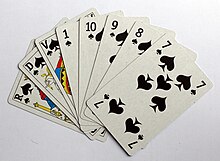Bête
| |||||||||||||||||||||||||||||
Read other articles:

Jess GlynneGlynne performing at South by Southwest in 2015LahirJessica Hannah Glynne[1]20 Oktober 1989 (umur 34)Hampstead, London, Inggris[1]Pekerjaan Penyanyi penulis lagu Tahun aktif2013–sekarangKarier musikGenre Pop R&B dance soul Instrumen Vocals piano Label Atlantic[2] Warner Black Butter Artis terkaitClean BanditSitus webwww.jessglynne.co.uk Jessica Hannah Glynne (lahir 20 Oktober 1989) adalah seorang penyanyi dan penulis lagu Inggris. Setelah menand…

Liberal arts college in Bar Harbor, Maine This article is about the liberal arts college in Maine. For the international school in Wales, see Atlantic College.College of the AtlanticTypePrivate liberal arts collegeEstablished1969; 55 years ago (1969)AccreditationNECHEEndowment$46.5 millionPresidentDarron CollinsUndergraduates364Postgraduates6LocationBar Harbor, Maine, United StatesCampusRuralColorsBlue and Green AffiliationsEco LeagueCouncil of Independent Colleges …

Экономика Бразилии Фондовая биржа Сан-Паулу Валюта реал (BRL, R$) Фискальный год календарный год Международныеорганизации UNASUR, ВТО, Меркосур, G-20 и др. Статистика ВВП $2,023 трлн[1] Место по ВВП 8 Рост ВВП 1,8 % (2017)[2] ВВП на душу населения $11,220 (2009) (номинальный)[1]$11,514 (2009) (…
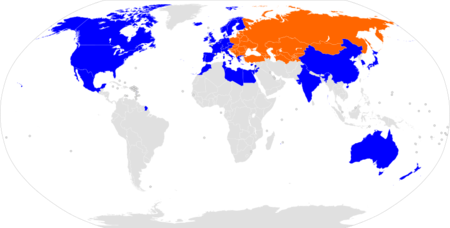
Pour les articles homonymes, voir Berd (homonymie). Ne pas confondre avec la Banque européenne d'investissement (BEI) et la Banque de développement du Conseil de l'Europe (CEB) Banque européenne pour la reconstruction et le développement Membres financeurs Membres récipiendaires d'investissements Investir de l'Europe centrale à l'Asie centrale.HistoireFondation 1991CadreType Institution financière internationale, multilateral development bankDomaine d'activité BanqueSiège LondresPays &#…

Populated place in Atlantic County, New Jersey, US Census-designated place in New Jersey, United StatesMays Landing, New JerseyCensus-designated placeFormer Central Hotel on Main Street, part of the Mays Landing Historic DistrictLocation of Mays Landing in Atlantic County highlighted in red (left). Inset map: Location of Atlantic County in New Jersey highlighted in orange (right).Census Bureau map of Mays Landing, New JerseyMays LandingLocation in Atlantic CountyShow map of Atlantic County, New …
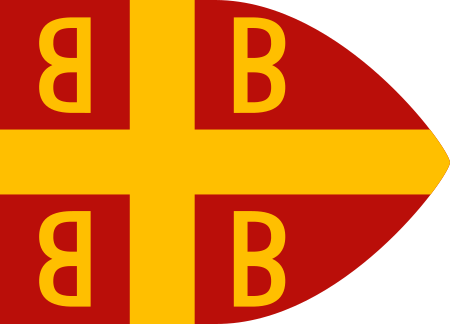
لمعانٍ أخرى، طالع حصار القسطنطينية. الحصار الآفاري الفارسي للقسطنطينية جزء من الحرب الساسانية-البيزنطية 602-628 والحروب الآفارية البيزنطية تصوير الحصار من كرونيكل قسطنطين ماناسيس معلومات عامة التاريخ يونيو–يوليو 626 البلد الإمبراطورية البيزنطية الموقع القسطنطيني�…
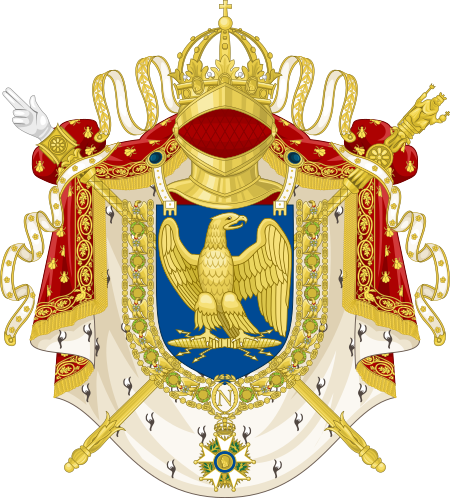
Bessières oleh Henri-François Riesener Jean-Baptiste Bessières, Adipati Pertama Istria (6 Agustus 1768 – 1 Mei 1813) merupakan seorang komandan militer Prancis dan marsekal kekaisaran yang bertugas selama Perang Revolusi Prancis dan Peperangan era Napoleon. Adiknya, Bertrand, mengikuti jejaknya dan akhirnya menjadi jenderal divisi. Sepupu mereka, Géraud-Pierre-Henri-Julien, juga melayani Kaisar Napoleon I sebagai diplomat dan pejabat kekaisaran. Bessières lahir di Prayssac de…
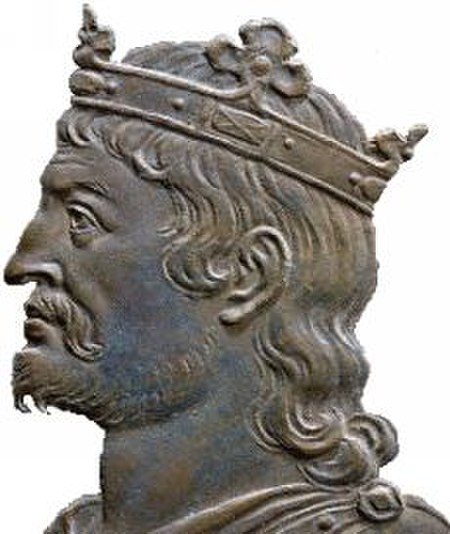
ملك الفرنجة ملك نيوستريا ملك برغوني ملك أوستراسيا تيودوريك الرابع (باللاتينية: Theudoricus)، و(بالفرنسية: Thierry) ملك الفرنجة فترة الحكم721 ـ 737 نوع الحكم ملكي كلوتير الرابع شيلديريك الثالث معلومات شخصية الميلاد حوالي 713 الوفاة 737 مكان الدفن كاتدرائية سان دوني اللقب ملك الفر�…

Equation relating the rate of an electrochemical reaction to the overpotential Tafel plot for an anodic process (oxidation) The Tafel equation is an equation in electrochemical kinetics relating the rate of an electrochemical reaction to the overpotential.[1] The Tafel equation was first deduced experimentally and was later shown to have a theoretical justification. The equation is named after Swiss chemist Julius Tafel. It describes how the electrical current through an electrode depend…

Komodor Udara (Anumerta)Ignatius Dewanto Informasi pribadiLahir(1929-08-09)9 Agustus 1929Yogyakarta, Hindia BelandaMeninggal1970Aceh, IndonesiaMakamTMP KalibataHubunganAyah (M. Marjahardjana) Ibu (Theresia Sutijem)Karier militerPihakIndonesiaDinas/cabangTentara Pelajar TNI Angkatan UdaraPangkat Marsekal PertamaSatuan Skadron Udara 3Pertempuran/perangPemberontakan PermestaSunting kotak info • L • B Komodor Udara (Anumerta) Ignatius Dewanto (lahir di Yogyakarta, Indonesia, 9 Agustus …

Fox affiliate in Little Rock, Arkansas KLRT redirects here. For the Marvel Comics character also known as Kl'rt, see Super-Skrull. KLRT-TVLittle Rock, ArkansasUnited StatesChannelsDigital: 30 (UHF)Virtual: 16BrandingFox 16 Arkansas; Fox 16 NewsProgrammingAffiliations16.1: Foxfor others, see § SubchannelsOwnershipOwnerMission BroadcastingOperatorNexstar Media GroupSister stationsKASN, KARK-TV, KARZ-TVHistoryFirst air dateJune 26, 1983(40 years ago) (1983-06-26)Former channel numbe…

Sporting event delegationEthiopia at the1972 Summer OlympicsIOC codeETHNOCEthiopian Olympic CommitteeWebsitewww.ethiolympic.orgin MunichCompetitors31 (men) in 3 sportsFlag bearer Mamo Wolde (Athletics)MedalsRanked 41st Gold 0 Silver 0 Bronze 2 Total 2 Summer Olympics appearances (overview)19561960196419681972197619801984–1988199219962000200420082012201620202024 Ethiopia competed at the 1972 Summer Olympics in Munich, West Germany. 31 competitors, all men, took part in 20 events in 3 sport…

Transvestite rights advocacy group Queens Liberation FrontQueens Liberation Front members (center: Lee Brewster) marching in New York City in 1973. Source: Transgender ArchiveFoundedOctober 31, 1969 (1969-10-31)LocationNew York City, New YorkKey peopleLee Brewster and Bunny EisenhowerFormerly calledQueens Queens Liberation Front (QLF) was a homophile group primarily focused on transvestite rights advocacy organization in New York City. QLF was formed in 1969 and active in the 1970…

الاتحاد المصري لكرة القدم الاتحاد المصري لكرة القدم مقر الاتحاد المصري لكرة القدم في الجبلاية، القاهرة الاسم المختصر EFA الرياضة كرة القدم أسس عام 1921 (منذ 103 سنوات) المؤسس جعفر ولي باشا[1] المقر الجبلاية، القاهرة الانتسابات الاتحاد الدولي لكرة القدم : 1923 الاتحاد الأف…

Marta Felicina Faccio Marta Felicina Faccio detta Rina[1], nota anche con lo pseudonimo di Sibilla Aleràmo (Alessandria, 14 agosto 1876 – Roma, 13 gennaio 1960), è stata una scrittrice, poetessa e giornalista italiana. È ricordata per il suo romanzo autobiografico Una donna, in cui dipinge la condizione femminile in Italia a cavallo fra il XIX ed il XX secolo. Indice 1 Biografia 1.1 Infanzia e adolescenza 1.2 L'inizio dell'attività letteraria 1.3 Le tormentate relazioni 1.4 Il comp…

Formula Satu musim 1974 Juara Dunia Pembalap: Emerson Fittipaldi Juara Dunia Konstruktor: McLaren-Ford Sebelum: 1973 Sesudah: 1975 Balapan menurut negaraBalapan menurut musim Emerson Fittipaldi dari Brasil berhasil memenangkan gelar Kejuaraan Dunia Pembalap, membalap untuk tim McLaren. Tim McLaren berhasil memenangkan gelar Kejuaraan Dunia Konstruktor yang pertama untuk mereka. Formula Satu musim 1974 merupakan musim balapan reguler Formula Satu yang diadakan dari tanggal 13 Januari sampai denga…

2010 air crash near the city of Smolensk, Russia Smolensk air disaster Polish Air Force Flight 101Wreckage from the Tu-154 at the crash siteAccidentDate10 April 2010 (2010-04-10)SummaryControlled flight into terrainSitenear Smolensk North AirportSmolensk, Russia 54°49′26″N 32°03′05″E / 54.82389°N 32.05139°E / 54.82389; 32.05139AircraftAircraft typeTupolev Tu-154MOperator36 SPLT, Polish Air ForceICAO flight No.PLF101Call signPOLISH AIRFORCE …

Piagam Jakarta Naskah Piagam Jakarta yang ditulis dengan menggunakan Ejaan yang Disempurnakan. Kalimat yang mengandung tujuh kata yang terkenal dicetak tebal dalam gambar iniPengarangPanitia SembilanJudul asliUndang-Undang Dasar Negara Republik Indonesia Tahun 1945, Mukadimah NegaraIndonesiaBahasaIndonesia (Ejaan Van Ophuijsen)Tanggal terbit22 Juni 2605 dalam kalender Jepang(22 Juni 1945 dalam kalender Gregorius)TeksPiagam Jakarta di Wikisource Piagam Jakarta adalah rancangan Pembukaan…

Álex Lora Álex Lora en 2006.Información personalNombre de nacimiento Alejandro Lora SernaOtros nombres Álex LoraNacimiento 2 de diciembre de 1952 (71 años)Puebla de Zaragoza, MéxicoNacionalidad MexicanaFamiliaCónyuge Celia García Guerrero (matr. 1980)Hijos Celia LoraInformación profesionalOcupación Cantautor, músicoAños activo 12 de octubre de 1968[1] – presenteSeudónimo Álex LoraGéneros Rock, blues rock, rock en español, rock latino, blues, rock and roll, Himn…

Daniel ClarkNazionalità Australia Regno Unito Ciclismo SpecialitàStrada, pista Termine carriera1998 CarrieraSquadre di club 1975-1976Carlos1977Gios1977-1978 Flandria1979-1980Marc-Carlos1985 Teka1986Ever Ready-Ammaco1987Sigma-Fina1988 Panasonic1989 ADR1990 Histor-Sigma1991-1993Union Fröndenberg1992 Subaru1994-1996Die Continentale1996RDM-New Systems Nazionale 1974-1995 Australia(pista)1974-1986 Australia(strada) Palmarès Competizione Ori Argenti Bronzi G…
